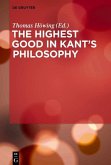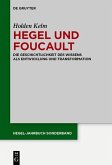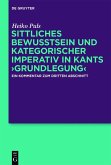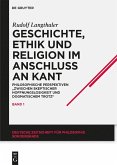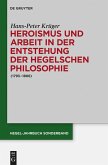The idea of a final end of human conduct - the highest good - plays an important role in Kant's philosophy. Unlike his predecessors Kant defines the highest good as a combination of two heterogeneous elements, namely virtue and happiness. This conception lies at the centre of some of the most influential Kantian doctrines such as his famous "moral argument" for the rationality of faith, his conception of the unity of reason and his views concerning the final end of nature as well as the historical progress of mankind. To be sure, the different treatments of the highest good in Kant's work have led to a great deal of discussion among his readers. Besides Kant's arguments for moral faith, recent debate has focused on the place of the highest good within Kant's moral theory, on the antinomy of pure practical reason, and on the idea of the primacy of practical reason. This collection of new essays attempts to re-evaluate Kant's doctrine of the highest good and to determine its relevance for contemporary philosophy.
Dieser Download kann aus rechtlichen Gründen nur mit Rechnungsadresse in A, B, BG, CY, CZ, D, DK, EW, E, FIN, F, GR, HR, H, IRL, I, LT, L, LR, M, NL, PL, P, R, S, SLO, SK ausgeliefert werden.
"Il maggior pregio del volume curato da Höwing sta in conclusione proprio nella molteplicità di interpretazioni indipendenti e talora opposte in esso presentate. Raccogliendo intorno ad alcune domande fondamentali una costellazione di possibili risposte, il testo si mostra capace di restituire alcune fra le più originali implicazioni della multiforme dottrina kantiana del sommo bene e certamente di stimolare nuove questioni."
Silvia Petronzio in: Con-Textos Kantianos. International Journal of Philosophy, N.o 4, Noviembre 2016, pp. 380-390
Silvia Petronzio in: Con-Textos Kantianos. International Journal of Philosophy, N.o 4, Noviembre 2016, pp. 380-390



